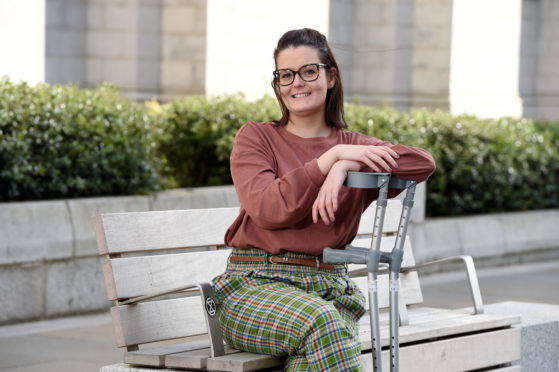Versus Arthritis is leading a #PainNoFilter campaign to mark World Arthritis Day today.
Rebecca North, 31, lives in Aberdeen and has been taking part in the initiative.
She was diagnosed with arthritis in August 2016 and yet had no health problems until April that year.
She now needs to self-inject medication into her leg every four weeks, alongside daily pain management.
She said: “People only see what I choose to show them – that is the reality of it.
“Its important to get behind the campaign and let people know that they’re not alone.
“You think it’s just you – you don’t think anyone else is going through the same pain and the tears – but other people are going through the same.”
Adding that people only show the world a curated version of themselves, Miss North said that when she highlighted the pain she was experiencing, she received numerous negative comments.
“I had a lot of people telling me that I was too young – it wasn’t arthritis.’
“But it isn’t just aches and pains. It isn’t just old people. You can’t just take painkillers and make it go away.”
Currently, 18 million people in the UK have arthritis or a related condition, with more than half experiencing pain everyday.
The #PainNoFilter campaign was launched to challenge attitudes and break down the stigma that is preventing people from getting support.
Two thirds of people surveyed by the charity said they didn’t tell people about their condition because they worried that they would be seen as “whingeing.”
Liam O’Toole, chief executive of Versus Arthritis, said: “With #PainNoFilter, we want to show people with arthritis they are not alone and they do not have to suffer in silence.
“And we want the public to recognise what it’s like to live with persistent pain, so that more people get the help and support they desperately need and deserve”.
Miss North added:”I had to get my head around being a new person, and just when I got used to the fact I was always hurting, the new medication worked. Then I had to get used to that person.”
Her mum, Patricia North, 60, thinks that raising awareness of the condition is vital.
She said: “Little things like badges can give people a strong message.”
